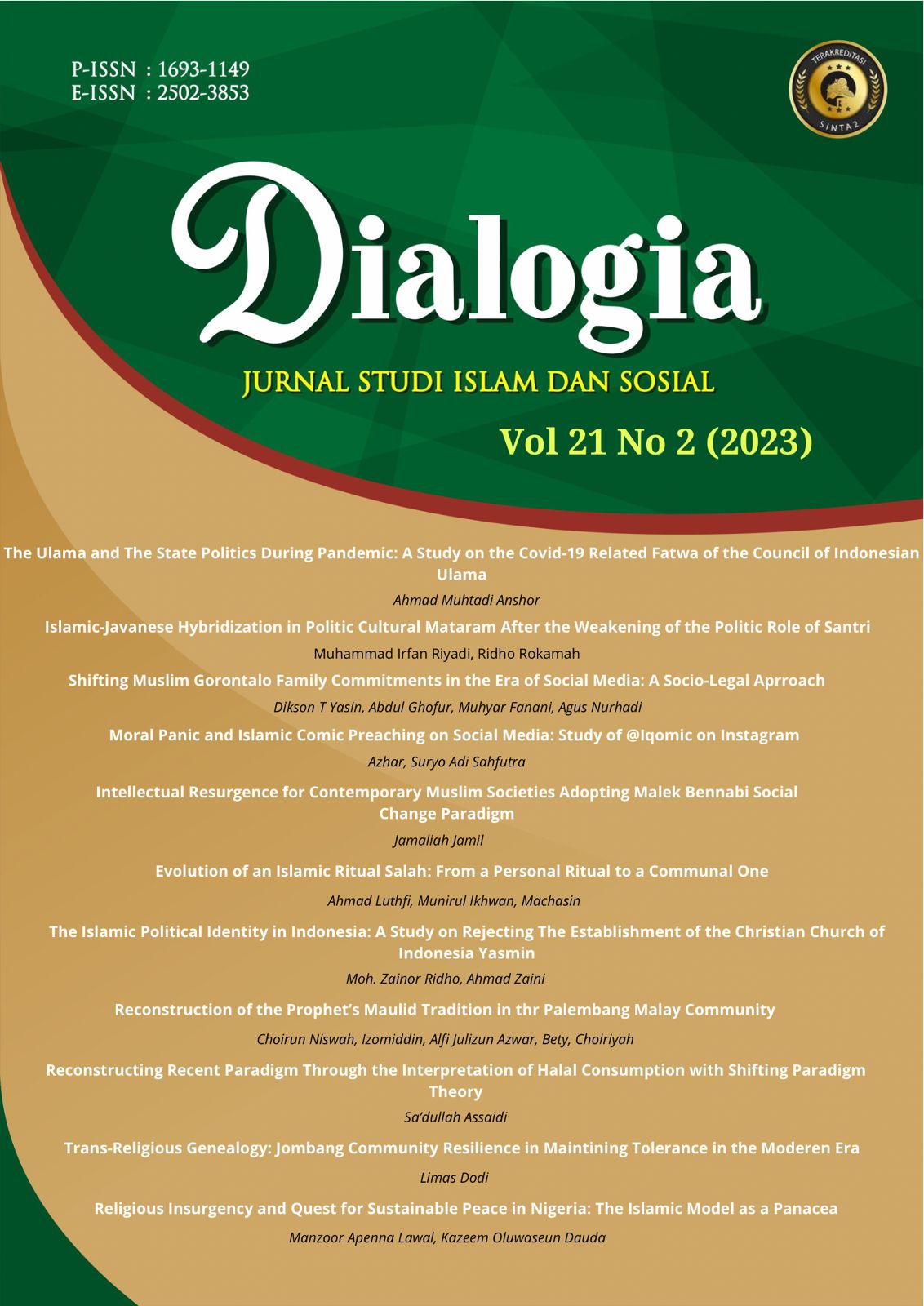Islamic-Javanese Hybridization in Politic Cultural Mataram After the Weakening of the Politic Role of Santri
DOI:
https://doi.org/10.21154/dialogia.v21i2.6164Keywords:
The Political Role of Islamic Boarding Schools, Santri, Sultan Agung.Abstract
The transformation of Java into a stronghold of Islam can be attributed to the emergence and evolution of Islamic boarding schools, which played a crucial role in disseminating the religion across the region. Initially rooted in the assimilation of the elitist Hindu-Javanese mandala educational model. Throughout their evolution, Islamic boarding schools were instrumental in shaping Islamic politics, particularly during the Sultanate of Demak to Pajang. The influential Walisanga, also known as Kyai of the pesantren, served as pillars in teaching, fighting, and sustaining the sultanates. A qualitative historical research approach using literary sources delves into the factors behind Mataram's diminishing support for the political role of the santri, Sultan Agung's subsequent actions, and the resulting impacts. The study concludes that the King of Mataram perceived the political influence of Islamic boarding schools, especially the former Walisanga Islamic boarding school, as an obstacle to absolute authoritarianism. Sultan Agung's ambition to become the sole ruler comparable to the greatness of Majapahit was hindered. Following the collapse of the political role of Islamic boarding schools, Sultan Agung asserted himself as Agung Binathara, reinforcing acculturative Islamic culture through the Islamic-Javanese calendar and traditions. The aftermath included authorities' arrogance towards Islamic boarding schools, leading Amangkurat I to replace Sultan Agung through the arbitrary slaughter of Kyai and santri. Additionally, this era gave rise to Islamic-Javanese syncretic traditions at the Mataram Palace, encompassing the garbage ceremony, bedoyo tawang dance, belief in the supernatural powers of heirlooms, and the Kejawen concept, embodying Javanese-Islamic syncretism.











